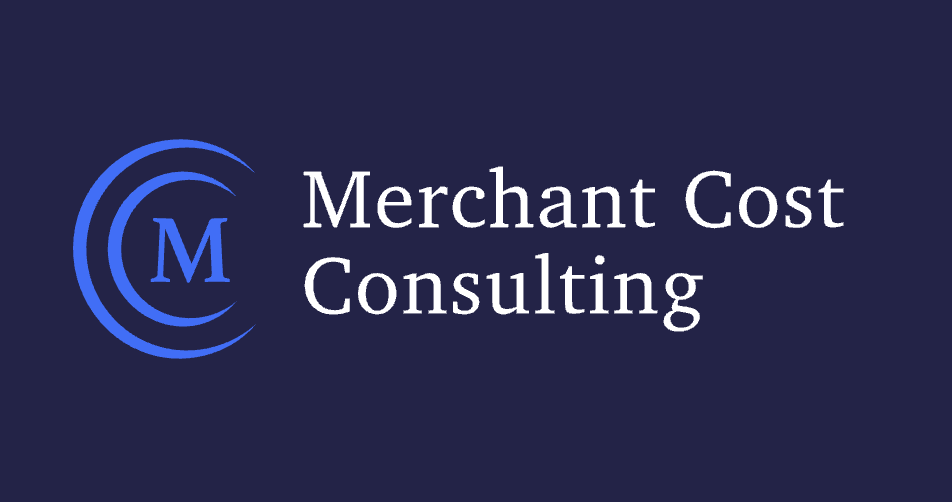How much does the average business pay for credit card processing? We break down the average credit card processing fees for 2024, and everything else you need to know.
Our content reflects the editorial opinions of our experts. While our site makes money through
referral partnerships, we only partner with companies that meet our standards for quality, as outlined in our independent
rating and scoring system.
Credit card processing fees costs can be a burdensome expense for your business, and most merchants pay too much in processing fees because they don’t understand how they work.
Having a sense of what the “industry average” is for certain fees can save you from paying too much for credit card processing. This will be helpful as you research the best credit card processing companies for your business.
This article explains what credit card processing fees are, how they’re assessed, and what you should expect to pay for them.
What Are Credit Card Processing Fees?
Credit card processing fees are the fees a business pays to process the transaction whenever a customer pays using a credit or debit card.
Most credit card processing fees go to the customer’s issuing bank (interchange fees), with small portions going to the credit card association (assessment fees) and the merchant’s credit card processor (processor markup).
What Are The Average Credit Card Fees For Small Businesses?
The interchange fees paid to the card-issuing bank typically range from 1.46% + $0.05 to 2.96% + $0.10 per transaction.
For 2023, these are the average fees charged by the four biggest card networks in the United States (Visa, Mastercard, Discover, and American Express), according to three different sources:
|
Visa |
Mastercard |
American Express |
Discover |
| Forbes |
- 1.15% + $0.05 to 2.40% + $0.10
- 0.14% average assessment fee
|
- 1.15% + $0.05 to 2.50% + $0.10
- 0.1375% (under $1,000); 0.01% ($1,000+) average assessment fee
|
- 1.43% + $0.10 to 3.30% + $0.10
- 0.15% average assessment fee
|
- 1.35% + $0.05 to 2.40% + $0.10
- 0.13% average assessment fee
|
| Business News Daily |
- 1.29% + $0.05 to 2.54% + $0.10
- 0.14% average assessment fee
|
- 1.29% + $0.05 to 2.64% + $0.10
- 0.1375% (under $1,000); 0.01% ($1,000+) average assessment fee
|
- 1.58% + $0.10 to 3.45% + $0.10
- 0.15% average assessment fee
|
- 1.48% + $0.05 to 2.53% + $0.10
- 0.13% average assessment fee
|
| Fool.com |
- 1.15% + $0.05 to 3.15% + $0.10
- 0.14% average assessment fee
|
- 1.15% + $0.05 to 3.15% + $0.10
- 0.13% (under $1,000); 0.14% ($1,000+) average assessment fee
|
- 1.10% + $0.10 to 3.15% + $0.10
- 0.17% average assessment fee
|
- 1.10% + $0.05 to 3.15% + $0.10
- 0.13% average assessment fee
|
Learn more about common credit card interchange fees in our study on the top major credit card issuers.
Note that the above fees do not include the processor markup, which varies from one processor to the next.
Types Of Fees
Here’s a brief explanation of each element of your credit card fees and how much each one will usually cost you:
Interchange Fees
“Average” credit card processing fees are highly variable because credit card brands break down transactions into hundreds of separate categories based on the risk factors that apply to that particular type of transaction.
These major factors affect the cost of interchange fees:
- Credit VS Debit Cards: Debit card transactions are inherently less risky because the funds are transferred directly from customers’ bank accounts. Credit cards, however, require the issuing bank to loan the funds to the customer, with repayment typically taking 30 days or longer.
- Card-Present VS Card-Not-Present: Retail transactions where the merchant can verify the customer’s identity and inspect the credit card present a relatively low risk of fraud. Online transactions, on the other hand, provide limited cardholder data and don’t allow as many options for identity verification. For this reason, card-not-present transactions incur higher interchange fees due to the greater chance of fraud. (Note that this risk can be mitigated by using security features such as tokenization.)
- Credit Card Type: Rewards cards that offer cash back or frequent flier points will cost more in interchange fees to offset these perks. These types of cards are particularly problematic under a tiered pricing plan, usually resulting in the transaction being downgraded to the most expensive unqualified tier.
- Transaction Size: Larger transactions are riskier than smaller ones, so the issuing banks charge a higher fee to process them. Credit card brands use a variety of additional factors to determine whether a transaction is “large” or “small,” so there isn’t a simple one-size-fits-all rule to determine where a given transaction will fall.
- Merchant Category Code: The major credit card brands use merchant category codes (MCCs) to classify businesses by the type of goods and services they offer. Depending on your product lineup, your business may fall under more than one MCC.
Assessments
While they usually constitute the smallest portion of your credit card processing costs, network assessment fees nonetheless make credit card acceptance just a little more expensive than it would be otherwise.
These are essentially licensing fees and are paid to the credit card brands themselves. Assessment fees usually range from 0.13% to 0.15% per transaction, depending on the card brand. These fees are typically lumped in with interchange fees as a single cost, as your processor passes them through to the issuing bank and credit card association.
For more detailed information on assessment fees and other charges imposed by credit card networks, check out our complete guide to card brand fees.
Markup
Credit card processing fees include two distinct elements: wholesale fees and markup fees. Wholesale fees encompass all the fees and charges that must be paid to the issuing bank and the credit card association (as discussed above). Markup fees are the fees your processor keeps for itself in exchange for processing the transaction and maintaining your merchant account.
Here’s a summary of the main differences between wholesale and markup fees:
- Wholesale fees are passed onto the issuing bank and credit card association, while markup fees are retained by your processor.
- Wholesale fees are the same for every processor, while markup fees differ for every merchant services provider.
- Markup fees can often be negotiated with your processor, while wholesale fees are fixed and cannot be reduced through negotiation.
Although wholesale fees are the same for everyone, there’s still a lot of variability from one transaction to the next. All the factors identified above (card type, transaction size, Merchant Category Code, etc.) will impact how much you’ll pay in wholesale fees for any transaction.
See whether or not you can easily pull out the wholesale fees and markups from the quoted rates in this table:
Sample Quoted Payment Processing Rates
| Sample Rate |
Pricing Model |
Wholesale Rate |
| INT + 0.25% + $0.10 |
Interchange-Plus (AKA Cost-Plus) |
Not included |
| INT + $0.10 (+ $99/Month Membership) |
Membership (AKA Subscription) |
Not included |
Qualified: 1.79% + $0.10
(Mid-Qualified: 2.19% + $0.15)
(Non-Qualified: 2.99% + $0.20) |
Tiered |
Included |
2.90% + $0.30 Online
2.75% In-Person |
Flat-Rate |
Included |
Fee Plan Comparison
Credit card processors base their processing rate plans on one of two approaches: pass-through or blended. Here’s how they work:
Pass-Through Approach
The pass-through approach is used in interchange-plus and membership pricing plans. With this approach, the interchange and the markup are separated, so you know exactly how much your processor takes from each transaction. This approach is generally best suited to established businesses with a stable month-to-month processing volume.
Pros
- Better transparency regarding the processor’s markup
- Generally less expensive for mid-sized and larger businesses
Cons
- Variable per-transaction costs due to variations in interchange rates
- Can be more complex to estimate processing costs in advance
Blended Approach
The blended approach is used in flat-rate and tiered pricing plans. With this approach, the interchange and the processor’s markup are combined into a single charge, so it can be more difficult to determine how much of your processing fee is going to the issuing bank and how much to your processor. The blended approach can save small or newly established businesses money — if the processor doesn’t charge additional recurring account fees.
Pros
- Processing costs are more predictable
- Simple rate structure is easier for merchants to understand
Cons
- Lack of transparency regarding processor markup
- Generally more expensive on a per-transaction basis (particularly tiered pricing)
Pricing Models
Credit card processors have come up with a variety of ways to charge you for processing your transactions in a way that covers their costs while ensuring a profit. Almost all pricing plans today fall into one of four models: interchange-plus, subscription, flat-rate, or tiered pricing.
Here’s how these plans work:
Interchange-Plus Pricing
With interchange-plus pricing, your merchant services provider simply adds a fixed markup to every transaction, so you’ll pay the interchange and assessment fees plus that markup. This markup is the same for every type of transaction, and the cost of processing each transaction varies based on the applicable interchange fee.
In addition to fully disclosing how much of your processing fees your provider keeps for itself, interchange-plus pricing tends to be less expensive overall than flat-rate or tiered-rate plans. However, additional merchant account fees can add to your overall costs, making this type of pricing most suitable for established businesses processing at least $5,000/month.
Membership Pricing
A variation of interchange-plus pricing, membership pricing (also called subscription pricing), eliminates the percentage-based portion of your processor’s markup and most merchant account fees in exchange for a single monthly subscription fee. With this type of pricing, you’ll pay just the interchange fees and a small, fixed per-transaction authorization fee (typically $0.05-$0.30/transaction).
However, the monthly subscription fee can be quite expensive—typically around $100/month or more. For this reason, we only recommend subscription pricing for large, established businesses with a high, stable monthly processing volume.
Flat-Rate Pricing
Flat-rate pricing addresses the confusion merchants often experience in trying to sort out their processing costs. With this type of pricing, you’ll pay the same rate for every transaction. (Well, sort of. Almost all providers offering flat-rate pricing use at least two rates: one for in-person transactions and another for card-not-present transactions.)
While predictable, these rates tend to be fairly high, as they have to cover the interchange fees and ensure a profit for even the most expensive transaction categories. At the same time, providers offering flat-rate pricing typically don’t charge any monthly or annual account fees, lowering overall costs. We recommend flat-rate pricing to startups and small businesses with a low or sporadic monthly processing volume.
Tiered Pricing
A variation of flat-rate pricing, tiered pricing separates your transactions into three tiers (qualified, mid-qualified, and non-qualified) based on various factors that usually aren’t disclosed very well. Each tier has a fixed rate, but it’s nearly impossible for a merchant to tell in advance which tier a transaction will fall into. Factors such as rewards cards and even submitting the transaction for processing after the date payment was accepted can drop a transaction into the non-qualified tier, where processing rates might be as much as two to three times higher than for qualified transactions.
Unfortunately, tiered pricing is quite popular with many traditional merchant account providers. It obscures markup costs and usually ensures a healthy profit. For merchants, your processing costs will almost always be higher with tiered pricing, and there are no counterbalancing advantages to this type of pricing. Stay away.
How Much Should You Pay In Fees As A Small Business?
To understand how much you’re really paying in fees, you’ll want to estimate your effective rate.
Your effective rate is simply the ratio of all processing costs (including account fees) to your overall sales volume, expressed as a percentage.
If you’re already accepting credit cards, you can quickly determine your actual effective rate by analyzing your most recent credit card processing statements.
For a regular, low-risk business, your effective rate should be about 3-4% — and no higher. High-risk merchants, unfortunately, can expect to pay much more in rates and fees — often nearly two times more than a comparable low-risk business.
How To Lower Or Offset Your Fees
Besides signing up with the cheapest credit card processor you can find, there are other things you can try to lower or offset your fees.
Some businesses may implement a cash discount program, while others save by imposing a minimum charge for credit card use.
Learn more about these and other ways to lower or offset your credit card processing fees.
 Matt has been helping small businesses make decisions since 2017. He has written reviews and articles across many different channels but specializes in the point of sale, payroll, and small business insurance categories and has been quoted in articles for Fox Business, Forbes, and other publications. Prior to joining Merchant Maverick, Matt was a journalist and editor for 14 years for a pair of weekly newspapers. He is a graduate of the University of Oregon and currently resides in Gladstone, Oregon.
Matt has been helping small businesses make decisions since 2017. He has written reviews and articles across many different channels but specializes in the point of sale, payroll, and small business insurance categories and has been quoted in articles for Fox Business, Forbes, and other publications. Prior to joining Merchant Maverick, Matt was a journalist and editor for 14 years for a pair of weekly newspapers. He is a graduate of the University of Oregon and currently resides in Gladstone, Oregon.A fixed rate is generally best when you are a small to mid-sized business because the fees are predictable. However, larger sellers may benefit from the lower rates of interchange plus pricing.
The Final Word On Credit Card Processing Costs
While some credit card processing fees are unavoidable, others can be reduced or eliminated through negotiation.
With that in mind, here are some recommendations to help you get the best service for a reasonable price:
- If you’re running a very small or seasonal business, look for a highly-rated credit card processor with flat-rate pricing.
- If you have a medium-sized business with a stable month-to-month processing volume, interchange-plus pricing will usually be your most cost-effective option.
- Large, established businesses can save even more money with a membership pricing plan.
- Regardless of the size of your business, avoid providers that will lock you into a long-term contract with an early termination fee (ETF).
- Avoid leasing your processing equipment under all circumstances.
- Read your proposed merchant agreement thoroughly before you sign up to gain a complete understanding of your fee structure.
- Choosing a slightly more expensive provider that offers superior customer service and support will be a worthwhile tradeoff.
Remember that there’s no overall “best” or “cheapest” payment processor, only the best/cheapest processor for your business. Making that final determination takes using sales data from your business and doing some math, but the time you spend analyzing the numbers will more than pay for itself in savings on credit card processing fees. Good luck!













